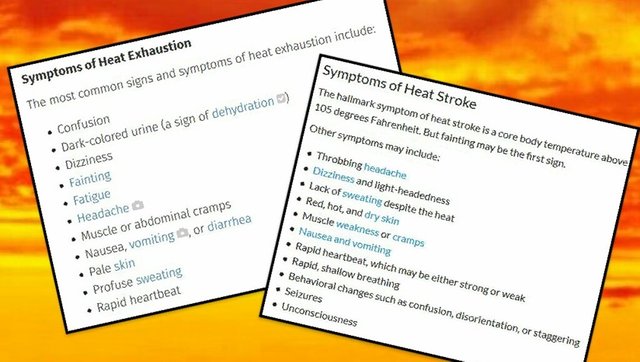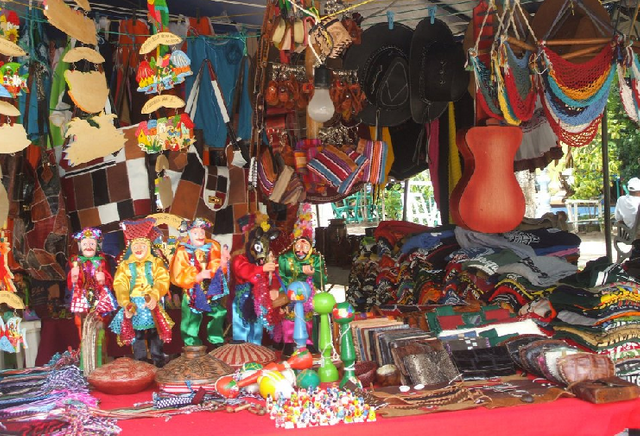Part 1, HALT to Reduce Travel Misadventures
Becoming aware of the conditions that make you most vulnerable can limit bad experiences while you travel and live abroad. Author expands on HALT self-care tool of AA.

Years ago, a friend taught me the HALT acronym, a self-care tool he acquired in Alcoholics Anonymous. Being hungry, angry, lonely, or tired can make someone in recovery more vulnerable to relapse, while awareness of when you should HALT what you’re doing can make sobriety easier.
Building a Survival Vocabulary
You don’t have to be in addiction recovery to benefit from HALTing. When I look back on the setbacks I experienced while traveling or living in a new country, I see that the vulnerable conditions that begin with H, A, L, and T contributed to my troubles, including ones I mentioned in my introductory blog.
However, hungry, angry, lonely, and tired aren’t the only conditions that can trip you up; we travelers and expats need a few other HALT words to keep in mind so we aren’t accessories in our own mishaps and small disasters. So let’s add Hot, Altered, Accustomed, Absorbed, Assuming, Lost, and Thirsty to our survival vocabulary.
What Happens in Rio
You may not have control over airline delays, lost luggage, power outages, and countless other aggravations, so control what you can. If you remember to bring along common sense wherever you go, you can become your own bodyguard even in the face of physical and emotional vulnerabilities. Remember, what happens in Vegas may stay in Vegas, but what happens in Rio can follow you home.
You also can apply HALT to other areas of your life, whether you are a creator, an entrepreneur, an employee, a boss, a parent, or someone healing from trauma.
I don’t like being a victim or making dumb mistakes, so I try to learn from each event where a HALT condition contributed. Having my travel companion point out that maybe I need to back off and cool down helps. (Not that I like him when he does.)
If you start out with vulnerabilities that you can’t change easily or at all (for instance, I’m old and have bad knees that keep me from running far or fast), it’s even more important to deal with the ones you can change easily.
In Parts 1 and 2 of this series, I offer information about how HALT vulnerabilities can affect travelers. I include common-sense reminders on how to strengthen and care for yourself, since these are easy to forget when you are experiencing HALT conditions. Part 1 covers H and A words; Part 2 covers L and T words. In Part 3, I’ll expand on the topic with examples illustrating how failure to HALT can trip you up in real life.
Let me emphasize that most people all over the world are wonderful people. Unfortunately, the tiny percentage who are not nice make life harder for the rest of us, and they are watching and waiting for us to make a mistake.
If someone commits a crime against you, the fault, the responsibility, lies with the one committing the crime. Your accountability lies in being where you were—the place, your condition, and so forth. By choosing to lessen your vulnerability, you can reduce the likelihood of having a rotten, frightening experience that can mess up the rest of your adventure.
Robberies and assaults aren’t the only events that can ruin a vacation or impact life in a new country. Illnesses, accidents, natural disasters, venomous bites, and scary new diseases: if it weren’t for all the benefits of travel and the fact that bad things can happen even at home, we might never venture out.
H – Hungry, Hot
Hungry
When you are hungry, you are more likely to:
• Make unwise food choices that will have you embracing a toilet later (trust me, there are some toilets you don’t want to hug)
• Get the fuzzy-brained shakes from low-blood sugar (hypoglycemia), which may make you less aware and less able to make good decisions.
To avoid problems, prepare for travel delays by keeping nutrient-balanced, easy-to-eat snacks handy. (If you’re flying or crossing borders, check for regulations. Items such as peanut butter and fresh fruit may be confiscated.) Monitor your hunger level and stop to eat before your stomach is growling ‘feed me, feed me NOW’; otherwise, you’ll be cranky or sick if you can’t find an open restaurant or service is slow.
Hot
When you’re overheated, you risk:
• An inability to cope
• An inability to complete or enjoy costly excursions
• Heat exhaustion with resulting confusion
• Life-threatening heatstroke.

When you are acclimating to a hotter climate or higher altitude or recovering from flights and time changes, don’t push yourself to see everything the first day. Alternate physical activity with sedentary observation and relaxation. Learn the symptoms of and treatment for heat exhaustion and heatstroke. Wear a hat. Take shade breaks frequently, preferably near a fan. Tie a damp kerchief around your neck or head or use a cold compress. Take a cool shower back in your room. Replace salt and other minerals.
Be aware that elevation gains and high humidity increase the exertion level of simple tasks. Drink lots of water; thirst contributes to overheating (see Thirst in Part 2). Watch your intake of alcohol and soft drinks. Hot tubs and alcohol can be a deadly combination. Being older (or a baby), taking medications, and having certain illnesses increase the risk of heat-related problems.
If you feel hot and begin experiencing cramps, nausea, headache, and other symptoms of heat exhaustion or heatstroke, get help fast.
A – Angry, Altered, Accustomed, Absorbed, Assuming
Angry
Inappropriately expressed anger can:
• Escalate confrontations to dangerous levels
• Make minor annoyances seem like the end of the world
• Get you in real trouble with foreign government officials.
Remember to breathe. If you find yourself becoming angry, be aware of your body: are you tired, hungry, thirsty, drunk, hungover, or in withdrawal from an addictive substance? (See other sections.) Are unprocessed emotions from an earlier event adding too much weight to a trivial occurrence? Walk away if you can. Work off your anger with physical activity in a safe place.
Ask yourself what’s at stake: Is it really worth all this emotion? Guard against anger tipping over into resentment.
Being outside of your comfort zone—and what else is travel?—can make you feel helpless, as if you’ve returned to first grade and can’t find a bathroom. You may not know the language or customs, you may have left your comforts and emotional support behind, you can’t get the hot water, the air conditioning, or the Wi-Fi to work, noise you can’t control is wearing you down: All of those factors can lead to anger.
Anger happens, but look at what might be feeding that anger and watch how you express it. If you are expecting an entire population to change to accommodate you, go home or adjust your attitude.
Customs can dictate, at least partly, how people react to an angry person; if you’re not in Kansas anymore, for God’s sake don’t act like it. Don’t assume that someone is personally insulting you; the person’s action may reflect tolerated practices—cutting in line, for example—in your new country. (That doesn’t mean you have to let them cut in line, but assert yourself gently.) Adopt the tranquilo attitude of Latin America, where social interaction is more important than efficiency. And remember: Emotional and mental control equals personal power.
Altered
When alcohol, other drugs, sexual urgency, illness, mental health issues, emotional trauma, withdrawal from a substance or activity, or other causes alter your functioning, you are more likely to:
• Be victimized by robbers and con artists
• Lose money or possessions
• Get lost
• Trust a new acquaintance too much
• Engage in unsafe sex.
I’m not going to tell you not to drink or do drugs, but realize that lowered inhibitions can come back to bite you. Before you start drinking, know how you will get home safely. Don’t carry excessive cash or valuables you can’t afford to lose. Do you really need your iPhone at the bar? Go to the bathroom between drinks rather than leaving a drink unguarded—and that advice applies to men as well as women. Go out with a group when you can.
The combination of alcohol/drugs and horniness can lead you down a merry path to terrible consequences. If you take a prostitute or a date that you don’t know back to your accommodations, you may be asking for trouble.
Drugs can get you into a much bigger realm of doo-doo. In many places, cannabis is illegal but tacitly accepted, but that doesn’t mean you can make purchases safely or avoid being shaken down for a bribe by a cop.
Don’t be surprised if someone walks up to you on a street, beach, or park to offer you weed or cocaine. If you bite, don’t believe you’re safe from arrest, don’t expect a good deal, and don’t spend more than you can afford to lose; that tightly wrapped package may turn out to be the kind of grass that grows in a lawn. Realize that prison conditions in most countries are much worse than in the U.S. and other developed countries.
If you are abstaining from an accustomed substance while outside your own country, realize that withdrawal can affect your ability to deal with the challenges of travel and culture shock. Use HALT tools to help you cope, just as you would in recovery.
Being away from your support system and dealing with the frustrations of a new place can exacerbate emotional issues. Fortunately, technology such as Skype and Facebook Messenger make it easier and cheaper to reach out to friends far away when you’re feeling overwhelmed.
Jet lag, unfamiliar food cooked in unsanitary conditions, bug bites, scorpion stings, temperature and elevation changes can all make you feel sick. Have some basic medications and first aid supplies with you, so you have medicine when diarrhea hits you at 4 in the morning or you have an allergic reaction.
Accustomed
When you become accustomed to your surroundings—your home or lodging, your vehicle, restaurants and other businesses you frequent, your streets and neighborhoods—you’re more likely to let down your guard. You may:
• Not notice that someone is following you
• Believe that no one would rob you or victimize you in a familiar business
• Forget to safeguard your belongings
• Forget to check clothes and shoes for insects.
That process of becoming comfortable can happen quickly in a new place, and people who make their living off vulnerable victims know all the signs.
Don’t confuse familiarity with safety. Guard your drinks even in your favorite bar, stay aware of your surroundings, lock up your stuff before you leave your lodgings or watch it while you’re out. Usually, leaving it is better, but some hostels have a bad reputation for thefts. If you have a daypack, buckle it to a chair to slow down grab-and-run thieves.
Absorbed
When you are in your own little world, whether because you are on your phone or tablet, talking to a friend, sick, in pain, depressed, worried about your problems, or possessed of a belief that others will look out for you because you’re so special, you may:
• Step into a hole or run into a post (much more amusing when it happens to someone else)
• Lose awareness of other dangers, such as someone following you
• Behave rudely
• Make transportation errors—getting on the wrong bus or boat or missing your stop.

Walking distracted can get you in trouble. If you look up an address or call up a map, step out of the flow of traffic and stop. (Yeah, laugh at how old-fashioned I am—until you step into a three-foot-deep hole.)
Assuming
Assuming can turn you into an ass abroad or put you into dangerous situations. Don’t assume:
• That locals are willing or able to speak your language
• That locals don’t speak your language
• That rules and laws will protect you
• That you can travel on crumbling roads in challenging terrain in the same amount of time it would take on a freeway
• That the way it is done where you come from is the best way or the only way to do it
• That the immigration rules of three months ago are still in effect
• That a robber won’t hurt you
• That political unrest and natural disasters won’t happen until after you leave
• That the lit street you’re on won’t suddenly be plunged into darkness
• That comforts and conveniences you consider basic are available everywhere else
• That infrastructure is available and works properly (the quality and reliability of postal systems, emergency medical care, roads, electricity, and internet vary greatly)
• That you have a clue.
This post has been linked to from another place on Steem.
About linkback_bot